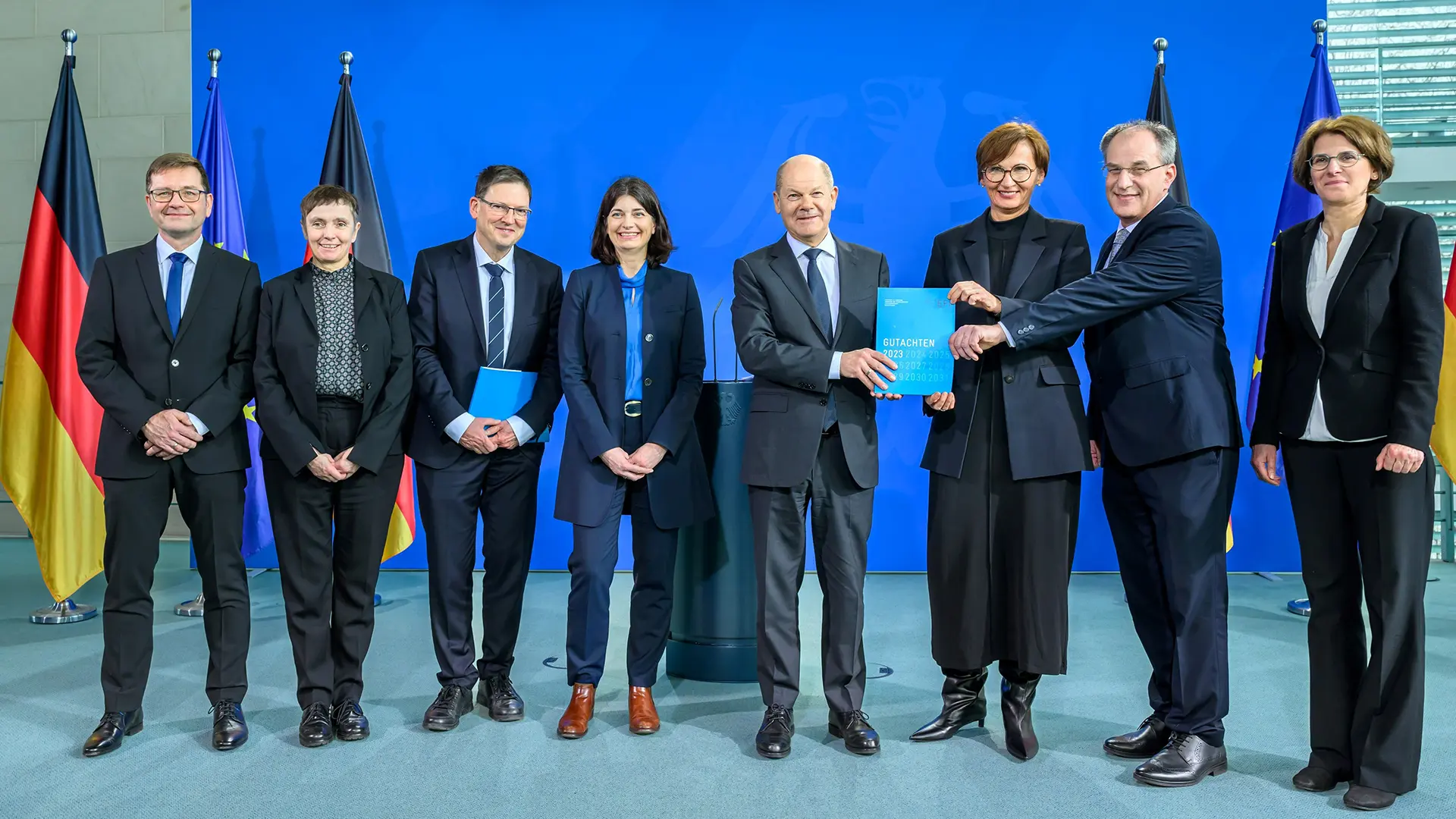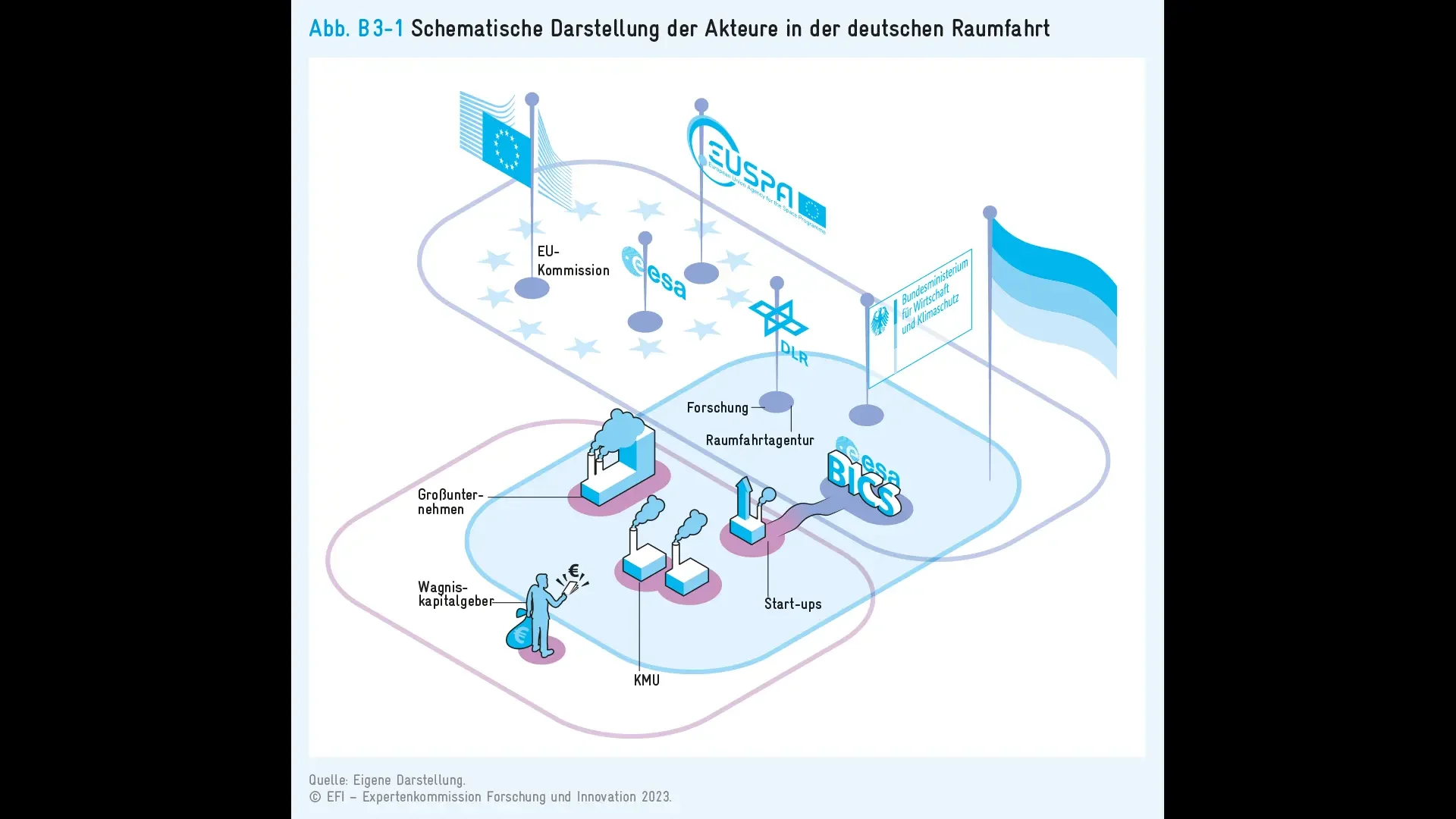
BHO Legal participates in EFI report 2023
Published on Sun, 26.02.2023 – 12:49 CET in Politics, covering BHO LegalEvery year, the EFI Commission of Experts for Research and Innovation presents its report to the German government. One of the main topics of the 144-page report is "German Aerospace between Old and New Space". Attorneys and partners Dr. Ingo Baumann and Jan Helge Mey of the Cologne-based law firm BHO Legal also contributed to the content of the report.
In the introductory chapter "B3 - German Aerospace between Old and New Space", the report takes a look at the changing framework conditions for space flight. As the authors point out, the shift from a predominantly state-run to a private-sector space industry poses a number of new challenges. Of particular importance are the many applications based on satellite technology. Although they have become indispensable in many areas of our lives here on Earth, the situation in orbit has long been neglected. According to experts, there is a lack of regulations to coordinate public and private space activities. In addition, the European space industry does not need to fear comparison with the United States when it comes to patents. But "Germany is lagging behind when it comes to the framework conditions for the successful commercial use of space.
Germany in need of space law
One of the reasons for the backlog is Germany's outdated space strategy. It dates from 2010 and does not take sufficient account of current circumstances. A new one is to be drafted, but the BMWK's policy paper does not mention the need for a German space law. However, the state also plays an important role in the commercialization of space. The lack of clarity about a new strategy leads to uncertainty, especially for small and medium-sized enterprises (SMEs) and start-ups. In the worst case, the entire business model could become obsolete. But more importantly, it leaves legal issues unresolved. This becomes particularly clear when it comes to questions of liability. According to the authors, the German state "bears responsibility under international law for all space activities on German soil and by German actors. It is irrelevant whether these are state or private actors. Moreover, the Federal Republic of Germany is also liable for damages to third parties.

Who is liable for damages?
At present, the space industry has something of a Wild West atmosphere. The pie to be shared is huge and promises to be enough for many international players. But it is already clear that without clear rules and a sufficient sense of responsibility, disaster can strike quickly. After all, thousands and thousands of satellites in space cannot simply orbit the earth in an unorganized fashion. This could be regulated by an obligation to register and approve space objects. There is a national register for space objects, but without a law there is no obligation to register. The report does not give much hope that this could change more quickly at the European level. A law is not in sight, although there are calls for clear rules at European and international level.
EFI report recommends mandatory insurance for space activities
The report also mentions the importance of a German space law for liability issues. In national space laws, (joint) liability is usually coupled with an insurance obligation. However, if the liability limits are too high, this could lead to high insurance costs. This would be bad for microsatellite initiatives. According to the EFI report, liability limits of around €60 million are therefore common internationally.
If the State is held liable for damage caused by a private actor, the State may take recourse against the polluter up to the amount of the compulsory insurance. If the actor is held liable for the damage under civil law, he is liable up to the amount of the compulsory insurance; beyond that, the State is liable as guarantor.
EFI report 2023
Current laws and regulations become a competitive disadvantage
The fact that space debris is a serious problem is demonstrated time and time again. The International Space Station (ISS), for example, regularly has to make orbit corrections to avoid debris. Satellites also perform evasive maneuvers all the time. The authors of the EFI report therefore recommend that the avoidance and removal of space debris be enshrined in law. They also recommend that the German government establish an authority to approve space activities and monitor the legal framework.
The "Act for the Protection against Threats to the Security of the Federal Republic of Germany from the Dissemination of High-Quality Earth Remote Sensing Data" occupies a special - and almost antiquated - position. The Satellite Data Security Act (SatDSiG) came into force on November 23, 2007 and regulates, among other things, the licensing requirements for the generation of security-relevant data with high information content. In simple terms, this means high-resolution satellite imagery. However, the values specified in the associated Satellite Data Security Ordinance (SatDSiV) are no longer up to date and have long since been undercut by commercial providers. According to SatDSiV, the use of a geometric resolution of 2.5 meters or less requires a permit in Germany. For companies whose business model is based on processing this data, this is a disadvantage in international competition.
Recommendations for Action in the EFI 2023 Report
The chapter concludes with clear recommendations for the German government to ensure that the commercialization of space in Germany is not slowed down. Specifically, it calls for a speedy launch of the space strategy, coordination of government demand and increased cooperation between civil and military actors, improved framework conditions for private actors, and a European perspective on space.